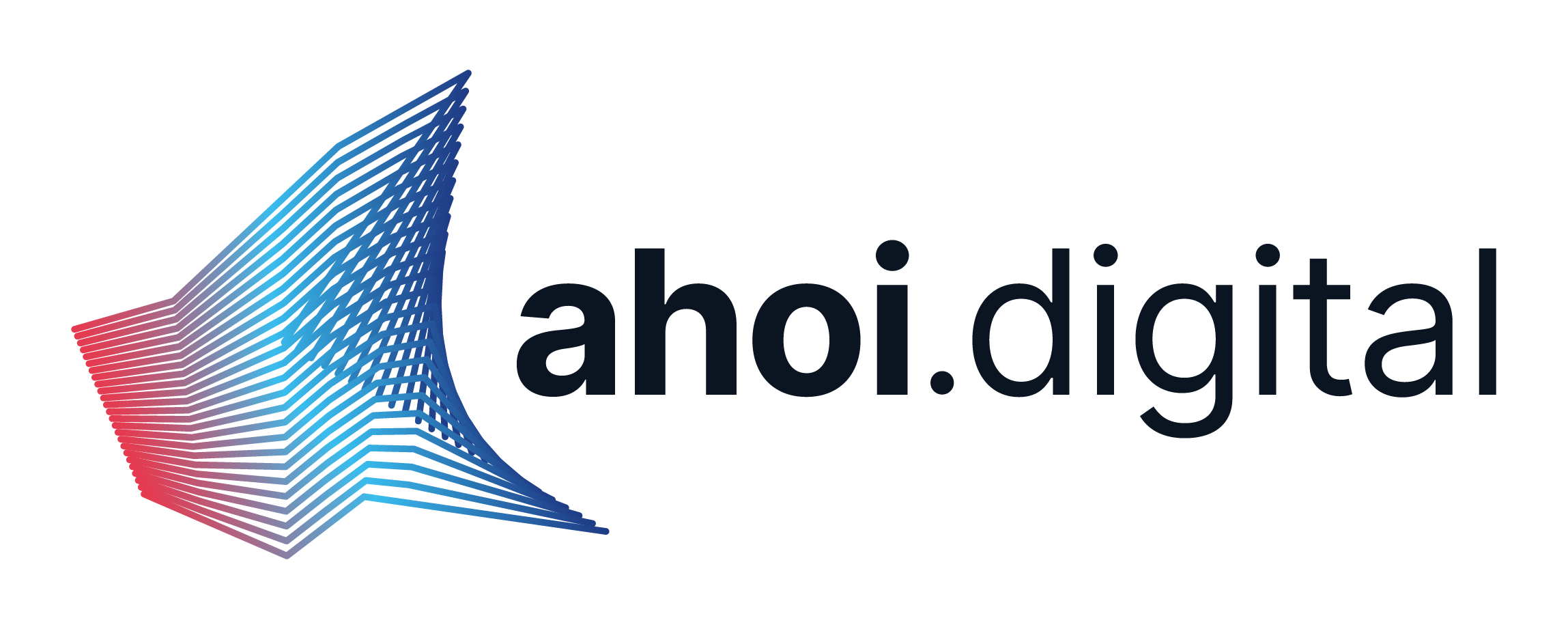ahoi.digital
Network of Labs
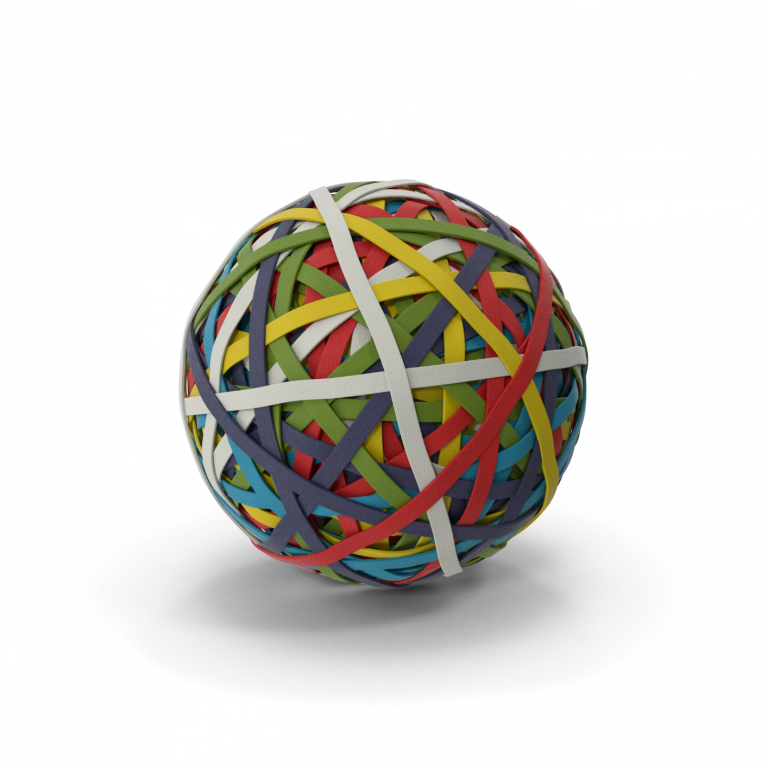
Network of interdisciplinary creative labs as an interface between computer science, civil society, politics and economy

Network
Network of interdisciplinary creative labs as an interface between computer science, civil society, politics and economy

of
The labs combine their complementary profiles with the common claim to be a creative space and a platform for the transfer of knowledge, skills and experts,

Labs
to support open innovation processes with civil society and companies as partners and to provide application-oriented and lively places for quick experiments and agile prototyping for all facets of computer science
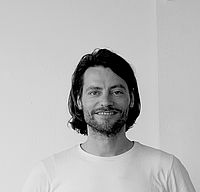
The Creative Labs are the garages for the universities and showcases to society. With the ahoi.digital Network of Labs we have a powerful idea-driven engine for innovation and experimentation between the Labs and the region.
Martin Kohler
Head of NoL
ahoi.digital
these are the Labs
each of the ahoi.digital universities has established a lab, which collaborate with each other within the NoL

base.camp
The base.camp is a creative lab at the University of Hamburg and supports students in implementing projects and offers experimental space to try out lightweight ideas and frameworks. Scientists from the Department of Computer Science at the University of Hamburg provide expert assistance. Successful projects are accompanied up to the start-up phase and are also networked with industrial partners in very early phases.
CSTI
The Creative Space for Technical Innovations Laboratory of HAW Hamburg is an interdisciplinary platform for applied research and knowledge transfer in the field of human-machine interaction and smart systems, based on computer science, in cooperation with, among others, mechatronics, design & art as well as social and cultural sciences.
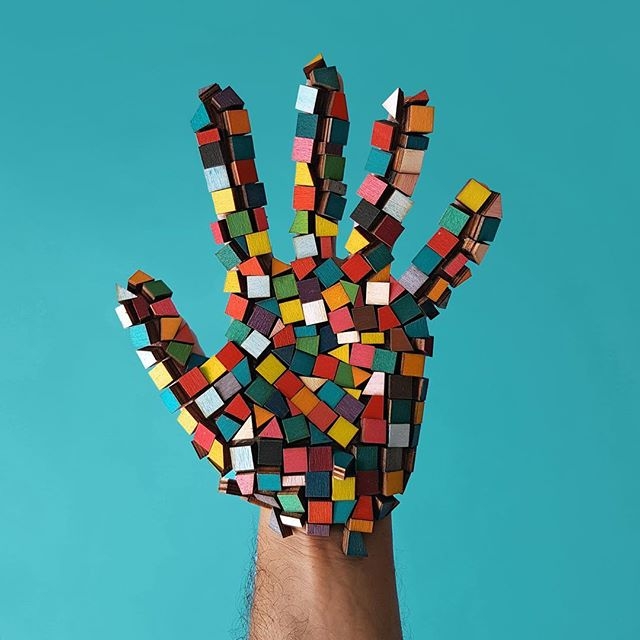
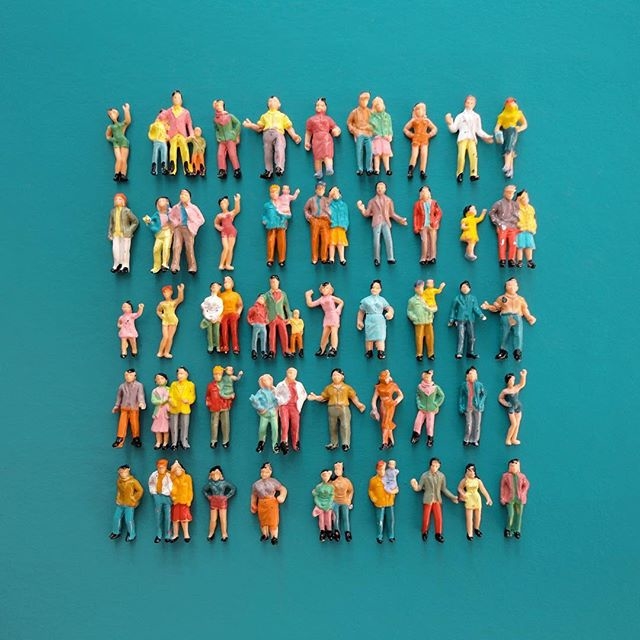
CityScienceLab
The CityScienceLab at HafenCity University Hamburg is working with partners from civil society, politics, business and science to research the transformation of cities in the context of digitization. It pursues a decidedly inter- and transdisciplinary perspective by linking technical issues with social and cultural developments.
Things@TUHHLab
The Things@TUHHLab at the TU Hamburg is an interdisciplinary innovation laboratory for the application of technologies such as the Internet of Things, sensor networks and cyber-physical as well as embedded systems in areas such as intelligent infrastructure and intelligent city. Students have the opportunity to participate in practical or scientific research projects.

ahoi.digital
this is what happens in the Labs
A selection of projects from the Network of Labs

CSTI projekt
Shelldon
Five networked turtles (code name „Shelldon“) were developed within the framework of the eCulture Innovation Forum. The turtles served as vivid examples of 3D printing, human-computer interaction and smart objects. Depending on their position, the color changes and the well-being of the turtle is displayed. If a turtle lies on its back, the red panic mode is activated and the other turtles react empathically. Various calls for help are also sent to the network (such as telephone calls or Tweets…).
For the 3D printing, transparent filament and the STL template „Garden Turtle“ from pmoewa were used.
Pmoews: Garden Turtle
www.thingiverse.com/thing:421809
Follow Shelldon on Twitter:
@CSTI_Shelldon
A Project from Gerald Melles und Jessica Broscheit
base.camp projcect
LAMP
The constant improvements of quality management in university teaching have been a focus topic in recent years and its importance has increased accordingly which has also been the case for the department of informatics at the University of Hamburg. In this context, formative-adaptive tests based on the open source platform OpenOLAT were introduced in selected modules, which are intended to deepen and interactively review the individual preparation and follow-up of the lecture content. Despite the potential of data analysis and the adaptation of the lecture contents and exercises based on the student results, the analysis options of these software solutions have so far been very limited and have had a low informative value.
The LAMP base.camp project is intended to develop a software solution that provides advanced management and analysis options of these tests, which enable lecturers to gain specific insights into the learning progress of the students and to develop learning profiles based on that, which characterize those achievements. The solution aims to provide an option of compiling those tests and creating process mining based analyses that characterize the difficulty of individual questions and thus creating an expandable platform that significantly increases the teaching quality through data-driven statements that can be derived from those analyses.
Participants
Julien Scholz & Pascal Wiesenganger
Please get in Contact with:
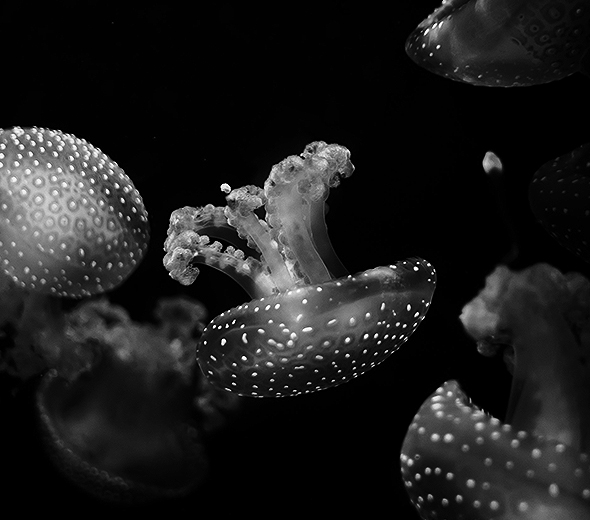
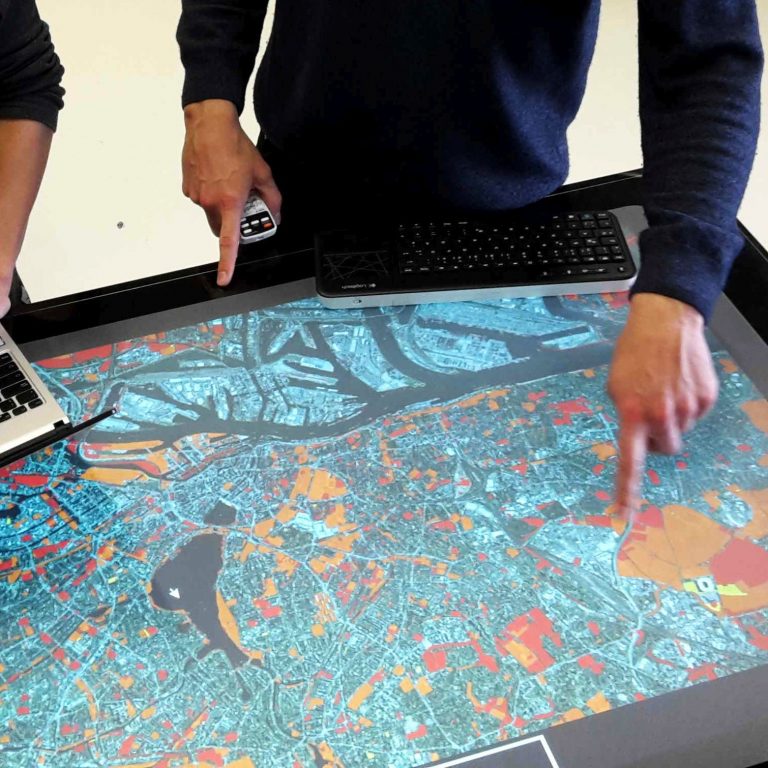
citysciencelab projekt
DIPAS
DIPAS a digital participation system
The city’s online participation tool is to be merged with the CityScope city model developed by the CityScienceLab and expanded into an integrated digital participation system (DIPAS) that can be used online and on site.
DIPAS is the first application without media discontinuity for informal citizen participation in planning projects.
In the cooperation project, the CSL is responsible for scientific support, knowledge processing and development of analysis scenarios.
ahoi.digital
NoL Events
in regular irregularity the NoL organizes events
DIGITAL SCIENCE NIGHT #5
“Generation AI”
07. Dezember – 19:00
Präsentiert vom Network of Labs
Generation AI: Ich bin doch nur ein Language Model!
Live und vor Ort im Fundbureau Hamburg
ahoi.digital
learn more ...
about us
ahoi.digital the alliance of the Hamburg universities for computer science
Study
This information is only available in German
ahoi.digital
Network of Labs

Network of interdisciplinary creative labs as an interface between computer science, civil society, politics and economy
ahoi.digital
Network of Labs

Network of interdisciplinary creative labs as an interface between computer science, civil society, politics and economy

Network
Network of interdisciplinary creative labs as an interface between computer science, civil society, politics and economy
of
The labs combine their complementary profiles with the common claim to be a creative space and a platform for the transfer of knowledge, skills and experts,


Labs
to support open innovation processes with civil society and companies as partners and to provide application-oriented and lively places for quick experiments and agile prototyping for all facets of computer science

Network
Network of interdisciplinary creative labs as an interface between computer science, civil society, politics and economy

of
The labs combine their complementary profiles with the common claim to be a creative space and a platform for the transfer of knowledge, skills and experts,

Labs
to support open innovation processes with civil society and companies as partners and to provide application-oriented and lively places for quick experiments and agile prototyping for all facets of computer science

The Creative Labs are the garages for the universities and showcases to society. With the ahoi.digital Network of Labs we have a powerful idea-driven engine for innovation and experimentation between the Labs and the region.
Martin Kohler
Head of NoL

The Creative Labs are the garages for the universities and showcases to society. With the ahoi.digital Network of Labs we have a powerful idea-driven engine for innovation and experimentation between the Labs and the region.
Martin Kohler
Head of NoL
ahoi.digital
these are the Labs
each of the ahoi.digital universities has established a lab, which collaborate with each other within the NoL
ahoi.digital
these are the Labs
each of the ahoi.digital universities has established a lab, which collaborate with each other within the NoL
base.camp
The base.camp is a creative lab at the University of Hamburg and supports students in implementing projects and offers experimental space to try out lightweight ideas and frameworks. Scientists from the Department of Computer Science at the University of Hamburg provide expert assistance. Successful projects are accompanied up to the start-up phase and are also networked with industrial partners in very early phases.
CSTI
The Creative Space for Technical Innovations Laboratory of HAW Hamburg is an interdisciplinary platform for applied research and knowledge transfer in the field of human-machine interaction and smart systems, based on computer science, in cooperation with, among others, mechatronics, design & art as well as social and cultural sciences.
CityScienceLab
The CityScienceLab at HafenCity University Hamburg is working with partners from civil society, politics, business and science to research the transformation of cities in the context of digitization. It pursues a decidedly inter- and transdisciplinary perspective by linking technical issues with social and cultural developments.
Things@TUHHLab
The Things@TUHHLab at the TU Hamburg is an interdisciplinary innovation laboratory for the application of technologies such as the Internet of Things, sensor networks and cyber-physical as well as embedded systems in areas such as intelligent infrastructure and intelligent city. Students have the opportunity to participate in practical or scientific research projects.
ahoi.digital
this is what happens in the Labs
A selection of projects from the Network of Labs

CSTI projekt
Shelldon
Five networked turtles (code name „Shelldon“) were developed within the framework of the eCulture Innovation Forum. The turtles served as vivid examples of 3D printing, human-computer interaction and smart objects. Depending on their position, the color changes and the well-being of the turtle is displayed. If a turtle lies on its back, the red panic mode is activated and the other turtles react empathically. Various calls for help are also sent to the network (such as telephone calls or Tweets…).
For the 3D printing, transparent filament and the STL template „Garden Turtle“ from pmoewa were used.
Pmoews: Garden Turtle
www.thingiverse.com/thing:421809
Follow Shelldon on Twitter:
@CSTI_Shelldon
A Project from Gerald Melles und Jessica Broscheit
base.camp projcect
LAMP
The constant improvements of quality management in university teaching have been a focus topic in recent years and its importance has increased accordingly which has also been the case for the department of informatics at the University of Hamburg. In this context, formative-adaptive tests based on the open source platform OpenOLAT were introduced in selected modules, which are intended to deepen and interactively review the individual preparation and follow-up of the lecture content. Despite the potential of data analysis and the adaptation of the lecture contents and exercises based on the student results, the analysis options of these software solutions have so far been very limited and have had a low informative value.
The LAMP base.camp project is intended to develop a software solution that provides advanced management and analysis options of these tests, which enable lecturers to gain specific insights into the learning progress of the students and to develop learning profiles based on that, which characterize those achievements. The solution aims to provide an option of compiling those tests and creating process mining based analyses that characterize the difficulty of individual questions and thus creating an expandable platform that significantly increases the teaching quality through data-driven statements that can be derived from those analyses.
Participants
Julien Scholz & Pascal Wiesenganger
Please get in Contact with:


citysciencelab projekt
DIPAS
DIPAS a digital participation system
The city’s online participation tool is to be merged with the CityScope city model developed by the CityScienceLab and expanded into an integrated digital participation system (DIPAS) that can be used online and on site.
DIPAS is the first application without media discontinuity for informal citizen participation in planning projects.
In the cooperation project, the CSL is responsible for scientific support, knowledge processing and development of analysis scenarios.
ahoi.digital
NoL Events
in regular irregularity the NoL organizes events
Häcks on the Beach "Wertflüsse"
Hackathon
Am 19.05. + 20./21.06.2020 findet der vom NoL organisierte Hackathon „Häcks on the Beach“ statt
ahoi.digital
learn more ...
base.camp

The base.camp is a creative lab at the University of Hamburg and supports students in implementing projects and offers experimental space to try out lightweight ideas and frameworks. Scientists from the Department of Computer Science at the University of Hamburg provide expert assistance. Successful projects are accompanied up to the start-up phase and are also networked with industrial partners in very early phases.
The Creative Space for Technical Innovations Laboratory of HAW Hamburg is an interdisciplinary platform for applied research and knowledge transfer in the field of human-machine interaction and smart systems, based on computer science, in cooperation with, among others, mechatronics, design & art as well as social and cultural sciences.
CSTI

CityScienceLab

The CityScienceLab at HafenCity University Hamburg is working with partners from civil society, politics, business and science to research the transformation of cities in the context of digitization. It pursues a decidedly inter- and transdisciplinary perspective by linking technical issues with social and cultural developments.
The Things@TUHHLab at the TU Hamburg is an interdisciplinary innovation laboratory for the application of technologies such as the Internet of Things, sensor networks and cyber-physical as well as embedded systems in areas such as intelligent infrastructure and intelligent city. Students have the opportunity to participate in practical or scientific research projects.
Things@TUHHLab

ahoi.digital
this is what happens in the Labs
A selection of projects from the Network of Labs

CSTI projekt
Shelldon
Five networked turtles (code name „Shelldon“) were developed within the framework of the eCulture Innovation Forum. The turtles served as vivid examples of 3D printing, human-computer interaction and smart objects. Depending on their position, the color changes and the well-being of the turtle is displayed. If a turtle lies on its back, the red panic mode is activated and the other turtles react empathically. Various calls for help are also sent to the network (such as telephone calls or Tweets…).
For the 3D printing, transparent filament and the STL template „Garden Turtle“ from pmoewa were used.
Pmoews: Garden Turtle
www.thingiverse.com/thing:421809
Follow Shelldon on Twitter:
@CSTI_Shelldon
A Project from Gerald Melles und Jessica Broscheit

base.camp projcect
LAMP
The constant improvements of quality management in university teaching have been a focus topic in recent years and its importance has increased accordingly which has also been the case for the department of informatics at the University of Hamburg. In this context, formative-adaptive tests based on the open source platform OpenOLAT were introduced in selected modules, which are intended to deepen and interactively review the individual preparation and follow-up of the lecture content. Despite the potential of data analysis and the adaptation of the lecture contents and exercises based on the student results, the analysis options of these software solutions have so far been very limited and have had a low informative value.
The LAMP base.camp project is intended to develop a software solution that provides advanced management and analysis options of these tests, which enable lecturers to gain specific insights into the learning progress of the students and to develop learning profiles based on that, which characterize those achievements. The solution aims to provide an option of compiling those tests and creating process mining based analyses that characterize the difficulty of individual questions and thus creating an expandable platform that significantly increases the teaching quality through data-driven statements that can be derived from those analyses.
Participants
Julien Scholz & Pascal Wiesenganger
Please get in Contact with:

citysciencelab projekt
DIPAS
DIPAS a digital participation system
The city’s online participation tool is to be merged with the CityScope city model developed by the CityScienceLab and expanded into an integrated digital participation system (DIPAS) that can be used online and on site.
DIPAS is the first application without media discontinuity for informal citizen participation in planning projects.
In the cooperation project, the CSL is responsible for scientific support, knowledge processing and development of analysis scenarios.
ahoi.digital
NoL Events
in regular irregularity the NoL organizes events
Häcks on the Beach "Wertflüsse"
Hackathon
Am 19.05. + 20./21.06.2020 findet der vom NoL organisierte Hackathon „Häcks on the Beach“ statt
ahoi.digital
